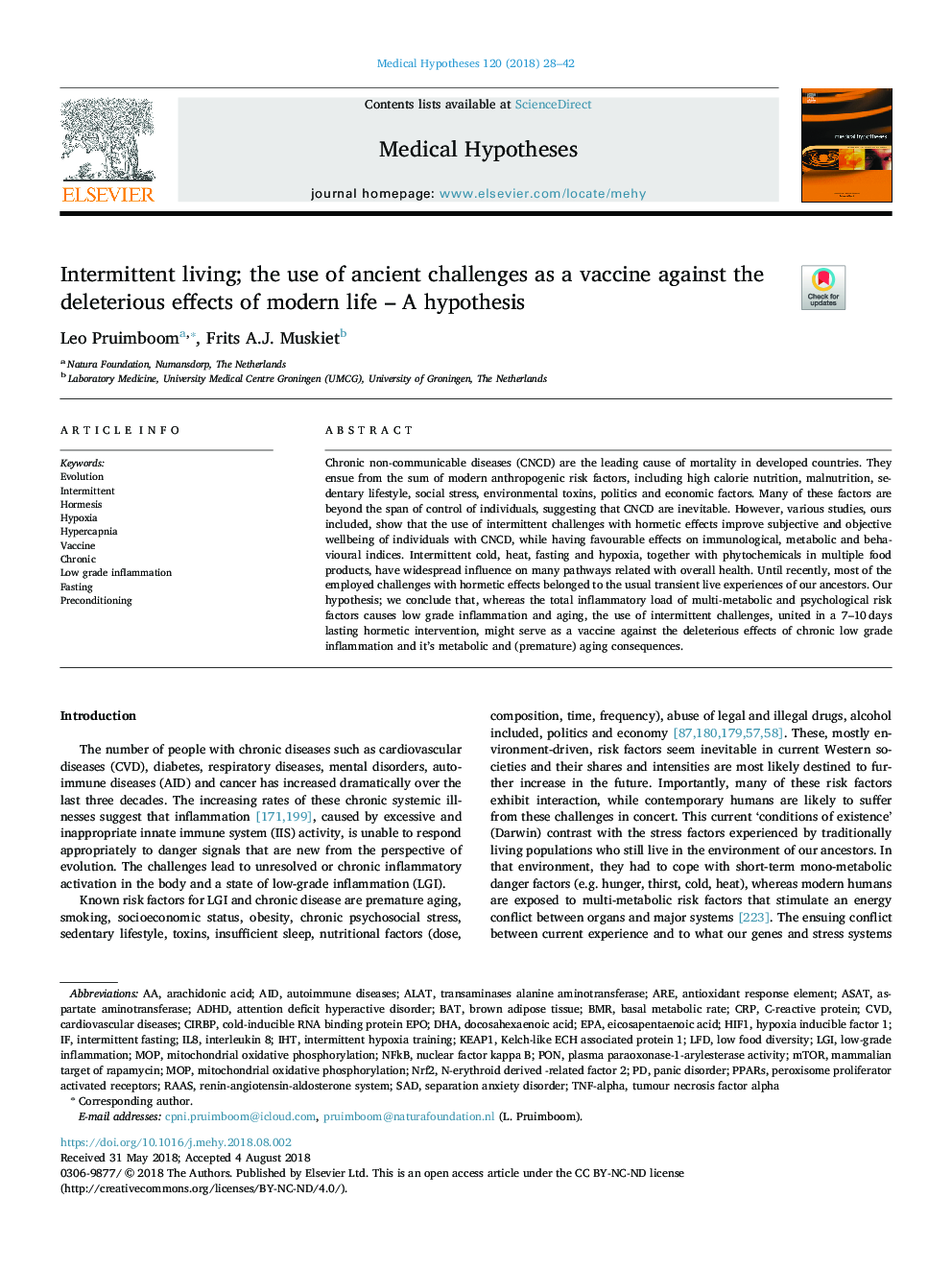| Article ID | Journal | Published Year | Pages | File Type |
|---|---|---|---|---|
| 8515099 | Medical Hypotheses | 2018 | 15 Pages |
Abstract
Chronic non-communicable diseases (CNCD) are the leading cause of mortality in developed countries. They ensue from the sum of modern anthropogenic risk factors, including high calorie nutrition, malnutrition, sedentary lifestyle, social stress, environmental toxins, politics and economic factors. Many of these factors are beyond the span of control of individuals, suggesting that CNCD are inevitable. However, various studies, ours included, show that the use of intermittent challenges with hormetic effects improve subjective and objective wellbeing of individuals with CNCD, while having favourable effects on immunological, metabolic and behavioural indices. Intermittent cold, heat, fasting and hypoxia, together with phytochemicals in multiple food products, have widespread influence on many pathways related with overall health. Until recently, most of the employed challenges with hormetic effects belonged to the usual transient live experiences of our ancestors. Our hypothesis; we conclude that, whereas the total inflammatory load of multi-metabolic and psychological risk factors causes low grade inflammation and aging, the use of intermittent challenges, united in a 7-10â¯days lasting hormetic intervention, might serve as a vaccine against the deleterious effects of chronic low grade inflammation and it's metabolic and (premature) aging consequences.
Keywords
RAASCIRBPLGILow grade inflammationKelch-like ECH associated protein 1IHTNFkBLFDMOPHIF1IL8BMRPONBATTNF-alphamTOREPANrf2keap1PPARsALATAspartate aminotransferaseseparation anxiety disorderAttention deficit hyperactive disorderPanic disorderAsatArachidonic acidEicosapentaenoic aciddocosahexaenoic acidLow-grade inflammationInterleukin 8brown adipose tissueADHDAutoimmune diseasesCardiovascular diseasestumour necrosis factor alphaDHACVDFastingRenin-angiotensin-aldosterone systemhypoxia inducible factor 1antioxidant response elementSADnuclear factor kappa BEvolutionMitochondrial oxidative phosphorylationIntermittentChronicbasal metabolic rateIntermittent fastingmammalian target of rapamycinAREHormesisHypercapniaHypoxiaVaccineC-reactive proteinCRPPreconditioningAIDperoxisome proliferator activated receptors
Related Topics
Life Sciences
Biochemistry, Genetics and Molecular Biology
Developmental Biology
Authors
Leo Pruimboom, Frits A.J. Muskiet,
